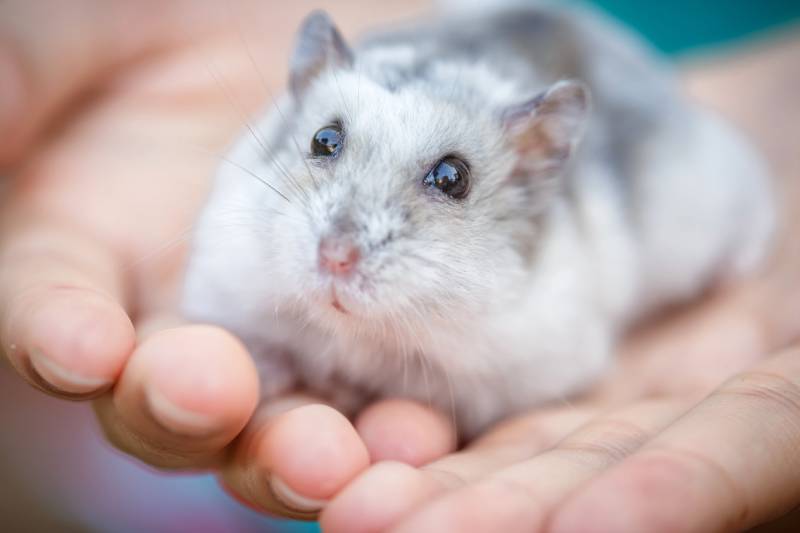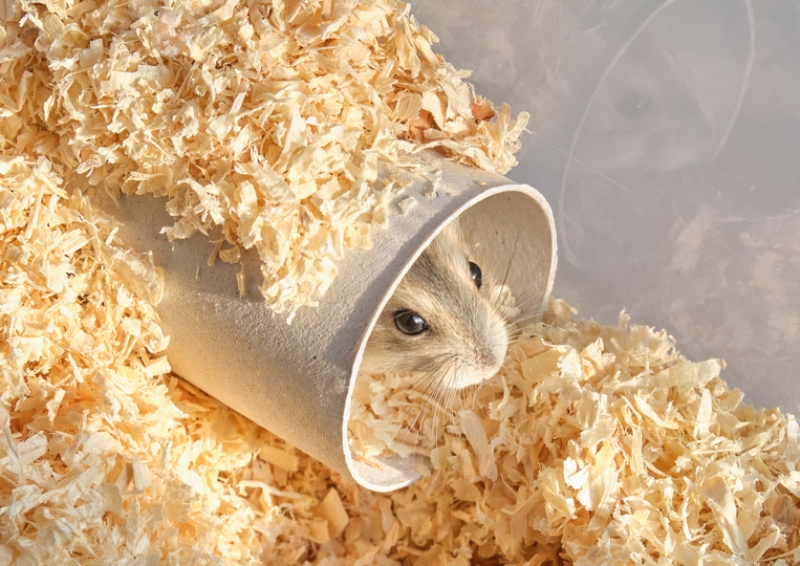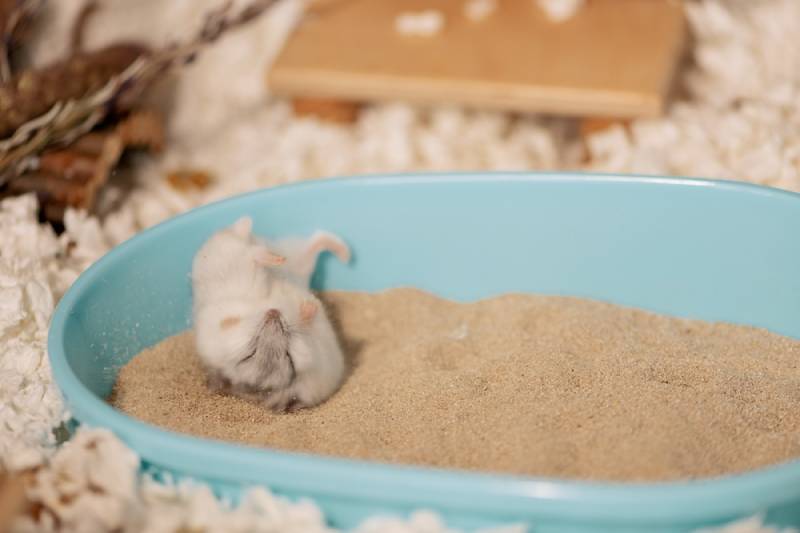Can Hamsters Eat Peas? Vet-Approved Feeding Facts
Updated on
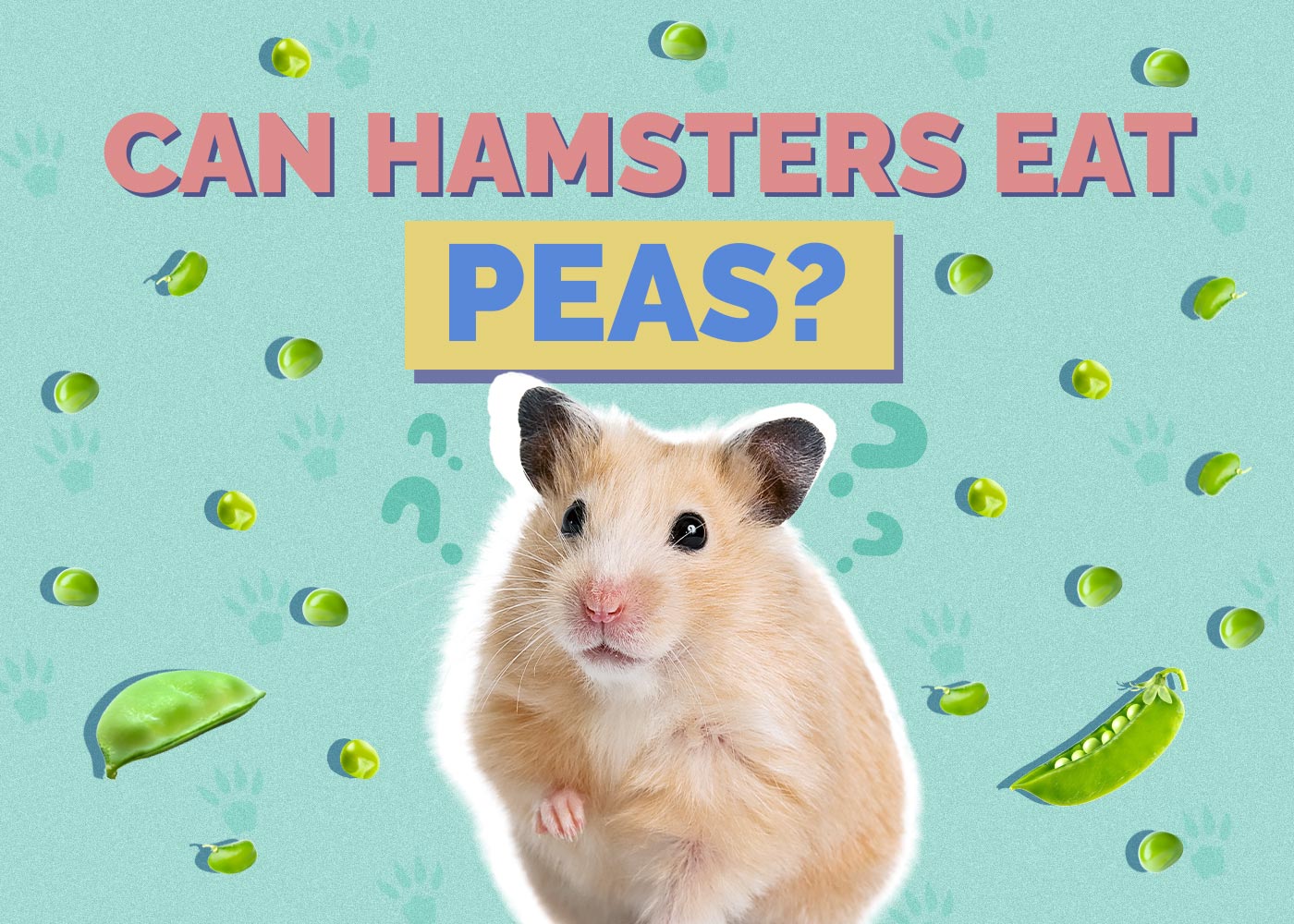
If you are looking to add variety to your hamster’s diet, peas can be a great option. Peas are naturally high in fiber and certain vitamins and minerals that benefit hamsters. Hamsters are omnivores and benefit from eating small amounts of vegetables, fruits and legumes (like peas) alongside their hamster pellets. More care needs to be taken with the dwarf hamster breeds, and moderation is particularly important in these breeds.
Feeding Peas to Hamsters
Here’s what you need to know when feeding peas to hamsters.

Safety and Risks
Peas are generally safe for hamsters to eat if they contain no risky additives like sodium, added sugar, or preservatives. Peas are a regular ingredient in many commercial hamster foods and are found in different forms such as split or whole. The Dwarf hamsters are much smaller and are thought to be more predisposed to obesity and diabetes than the larger breeds. Peas have a higher sugar content than other legumes, but given they also have a decent amount of fiber, they are not considered to have a high glycemic index (i.e. they don’t spike the blood glucose). Therefore they are suitable for all hamster breeds but it may be best to reduce the number of peas offered to the dwarf breeds.
There are a few risks associated with feeding hamsters peas, but they can still be offered in moderation alongside their main diet. Peas should not be a staple in your hamster’s diet, but as an occasional, healthy addition.
Peas could be a choking hazard for hamsters due to their small size, but most hamsters have no problem gnawing the peas to a swallowable size. If you see your hamster attempting to swallow a pea whole, they are likely storing it in their cheek pouches and not yet eating it. Most hamsters prefer to eat their food in the privacy of their burrows or hideouts and store their food for later.
Another risk to be wary of is overfeeding peas to hamsters. Peas have a relatively high water content which may upset your hamster’s stomach.
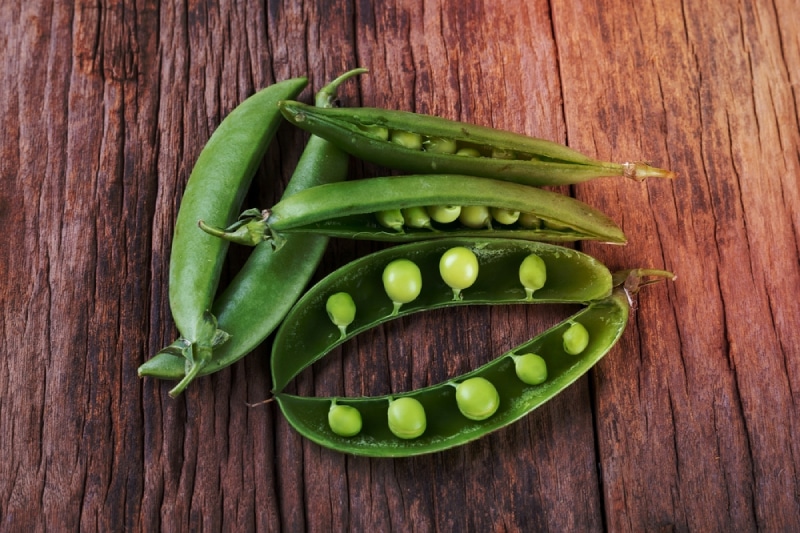
Nutritional Benefits
Peas are naturally high in dietary fiber needed for proper digestion. These legumes are also high in potassium, manganese, folate, and vitamins K and A which benefit hamsters. As with other legumes, peas are high in easily digestible plant-based protein.
Both plant and animal-based proteins are important for hamsters who are omnivores and eat a mixture of insects, vegetables, vegetation, and grains in the wild.
Preparation
The best way to prepare peas for your hamster is by boiling frozen peas on a stovetop, but hamsters can also eat fresh, raw peas. The peas should be prepared without any sauces, oils, spices, preservatives, brine, or any unsafe foods that hamsters shouldn’t eat. Many additives to peas that make them taste better for humans can be harmful to these small pets.

How Many Peas Should Hamsters Eat?
All species of domesticated hamsters can eat peas, including hybrid dwarf hamsters commonly found in pet shops. The main factors to consider when feeding peas to different hamster species are the portion sizes and the sugar content (as some species are more predisposed to diabetes mellitus than others). The larger species can eat more peas than the smaller species.
Larger species such as the Syrian and Chinese hamster can eat up to two peas. Whereas the smaller species should only eat one pea at a time. You generally want to avoid feeding too many peas to your hamster at once as it could upset their stomach.
| Hamster species: | Number of Peas: |
| Syrian hamster | Up to 2 peas |
| Winter white dwarf hamster | 1 pea |
| Campbell dwarf hamster | 1 pea |
| Roborovski hamster | 1 pea |
| Chinese hamster | Up to 2 peas |
| Hybrid dwarf hamster | 1 pea |
What Types of Peas Are Safe for Hamsters?
Hamsters can safely enjoy the following types of peas—provided that they are prepared correctly and free from harmful additives.
- Garden peas
- Snow peas
- Black-eyed peas
- Sugar snap peas
- Split peas
- Dried peas
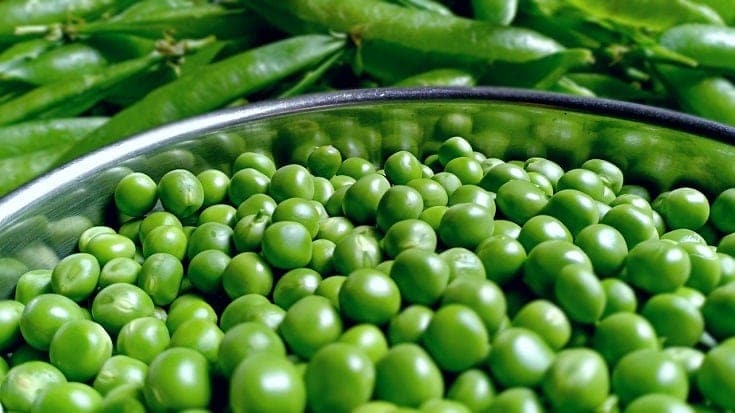
 Frequently Asked Questions (FAQ)
Frequently Asked Questions (FAQ)
Can hamsters eat frozen peas?
Hamsters may have difficulty eating frozen peas because they are too hard and cold. It is better to offer them cooked peas free from any harmful additives like sauces and seasonings. The peas should be soft enough for your hamster to eat, and not uncomfortably hot or frozen solid. Cooked peas should be completely cooled to room temperature to avoid burning your hamster.
Can hamsters eat dried peas?
Dried peas are perfectly safe for hamsters to eat and are commonly added to commercial hamster foods. However, you want to avoid feeding hamsters dried peas that contain additives meant for human consumption. Only plain dried peas should be offered to hamsters as an occasional snack.
Dried peas in commercial hamster foods are usually safer in slightly larger quantities, although they still shouldn’t be overfed. Around two to three dried peas per scoop of food is usually safe for hamsters. A muesli mix is not recommended because your hamster will likely pick out its favorite (generally sugary) components of the food which can lead to weight gain and health concerns. A pelleted food formulated for hamsters is a much more balanced option and you can give 1-2 peas alongside this every once in a while.
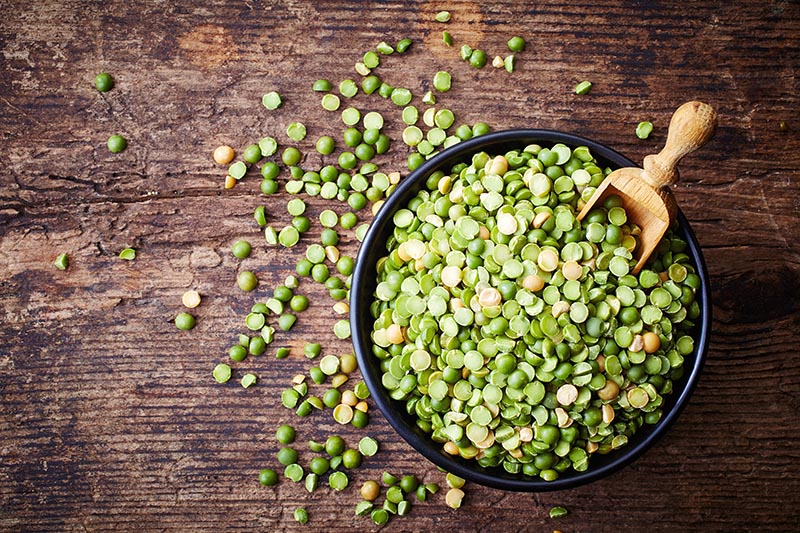
Can peas give dwarf hamsters diabetes?
No, dwarf hamsters cannot get diabetes from eating peas—this is a myth. While most hamster species can develop diabetes, dwarf species such as the Winter white and Chinese hamster might be more genetically predisposed. The exact causes of the development of type 1 diabetes in hamsters are not entirely understood by researchers, although it is thought to be linked to recessive genes. A high fat diet can also induce type-2 diabetes in hamsters, so ensuring a balanced, low-fat and low-sugar diet is key to maintaining your hamster’s heath.
If your hamster already has diabetes, you should be cautious about adding peas into their diet. Diabetic hamsters have special dietary requirements that should be planned with the help of an exotic veterinarian, so feeding new foods can be risky.
Can hamsters eat canned peas?
Plain garden or snow peas cooked until soft are the safest for hamsters. You want to avoid offering canned garden peas because of the potentially harmful additives. Canned peas often contain preservatives, brines, and added salt or sugar that do not belong in a hamster’s diet.
Final Thoughts
Peas, whether in a dried or cooked form, can be an excellent fibrous and protein-rich food hamster. All species of domesticated hamsters can safely eat peas alongside a balanced omnivorous diet. Peas should not be a hamster’s sole source of nutrition, and added vegetables and legumes should be varied. As with all additions to your hamster’s diet, moderation is key.
Hamsters can be picky about their diet once they take a liking to specific foods, so peas should only be offered as an occasional snack.
See also:
- Can Parrots Eat Parsley? Vet-Reviewed Health Concerns
- Why Does My Dog Follow Me Everywhere? 5 Common Reasons
Featured Image Credit: wantul, Pixabay


